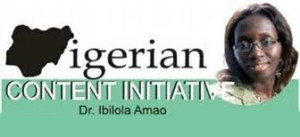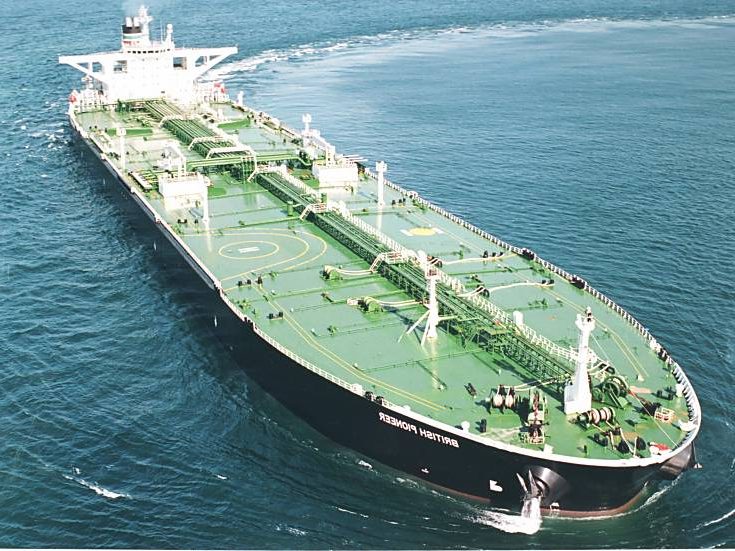 10 October 2014, Sweetcrude, Lagos – The President of the Movement for the survival of Ogoniland (MASOP), Legborsi Saro Pyagbara, recently stated that the Ogoni community will not accept half measures in the implementation of the United Nations Environment Programme (UNEP) Environmental Assessment of Ogoniland report. The UNEP report was presented to the President of the Federal Republic of Nigeria on 4 August 2011 and completely confirmed the claims of the Ogoni people: “That neglectful environmental pollution laws and sub-standard inspection techniques of the Federal authorities have led to the complete degradation of the Ogoni environment, turning our homeland into an ecological disaster.” Most of the recommendations in this report are yet to be enacted after 3 years.
10 October 2014, Sweetcrude, Lagos – The President of the Movement for the survival of Ogoniland (MASOP), Legborsi Saro Pyagbara, recently stated that the Ogoni community will not accept half measures in the implementation of the United Nations Environment Programme (UNEP) Environmental Assessment of Ogoniland report. The UNEP report was presented to the President of the Federal Republic of Nigeria on 4 August 2011 and completely confirmed the claims of the Ogoni people: “That neglectful environmental pollution laws and sub-standard inspection techniques of the Federal authorities have led to the complete degradation of the Ogoni environment, turning our homeland into an ecological disaster.” Most of the recommendations in this report are yet to be enacted after 3 years.
Today, there is still a lack of clarity over the roles of the State governments, Department of Petroleum Resources (DPR), Hydrocarbons Pollution Restoration Project (HYPREP), the Ministry of Environment (MoE) and Niger Delta Oil Spill Detection and Response Agency (NOSDRA) who are tasked with overlapping roles that relate to regulation and response to environmental pollution through oil spill. The report confirmed that what the people took as potable water had carcinogens, such as benzene, up to 900 times above World Health Organisation standards. The report also revealed that at some places in Ogoniland, the soil is polluted with hydrocarbons to a depth of five (5) metres.
Whilst the NNPC/Shell Joint Venture should take full responsibility for negligence due to operational oil spills in the environment, there is a secondary and tertiary aspect of the cause and effect of the primary problem. Should the joint venture take full responsibility for pipeline vandalisation, illegal bunkering and refining or should the Ogoni people be held liable for some aspects of the pollution resulting from illegal activities post operation? Why have pipelines not been replaced after the design life span of the asset has expired? The problem at hand is the like the case of the chicken and the egg, when traditionally, the Ogoni people depended on farming and fishing as their primary source of income. With pollution, destroying the flora and fauna they have been forced to seek other forms of livelihood, howbeit illegal in some cases.
OML 11 (Assaramatoru and Oza) and OML 13 (Stubb Creek, Qua Iboe, Uquo and Utapate) which are jointly owned by NNPC 55%, Shell 30%, TOTAL 10% and ENI 5% are pain points in the Niger Delta. Poor community integration strategies during operations by NNPC and her Joint Venture partners led to unrest in Ogoniland. In 1993 Ken Saro Wiwa was killed with the Ogoni seven who paid very dearly for voicing out the pain of their people and fighting for injustice. It is very likely that the lack of operational activity since 1994 could result in relinquishing the right to operate these assets since there has been no activity in Ogoni land since 1994.
The Government of Goodluck Jonathan and the Minister of Petroleum Resources as a response to the UNEP report set up Hydrocarbons Pollution Restoration Project (HYPREP) to address specific issues in the UNEP report. Today, we are yet to record tangible success resulting from the teams in the ten working units that were set up. The ten working units that include Water, Health, Coastal and Shoreline, Land Restoration are yet to record any tangible and transformational results.
The Ogoni people occupy an alluvial plain bounded on the north by the Imo River and their neighbours on the South, by the littoral flats inhabited by the Obolo (andoni), on the east, by the Opobo River and the Ibibio, and on the west by the Ikwere which stretches into the large city of Port Harcourt. Rivers State. Historically, their occupation was primarily fishing and farming. Today, the Ogoni land fundamentally requires land remediation, clean water and infrastructural development. However, the most important activity required by the Ogoni people apart from the fundamental issues afore-listed is the restoration of their dignity. The Ogoni people lack education, health and other social facilities. The need to educate, enlighten, empower and engage the youths of the Niger Delta cannot be over emphasised. A welcome response would be the remediation of the Ogoni land for the development of palm plantations and industrial parks where the Ogoni people would be empowered to export processed cash crops from the remediated lands.
Well thought through initiatives to identify talent develop and engage them for the transformation of Ogoni land; environment and people should be one of the top priorities of the President and the Minister of Petroleum Resources before the 2015 elections.
*Dr. Ibilola Amao is the Principal Consultant with Lonadek Limited, a firm of local content consultants with their core competence in the area of Technical Talent Identification, Development and Engagement. For more information or to reach Dr. Amao you can email her at lolaamao@lonadek.com or visit www.lonadek.com



